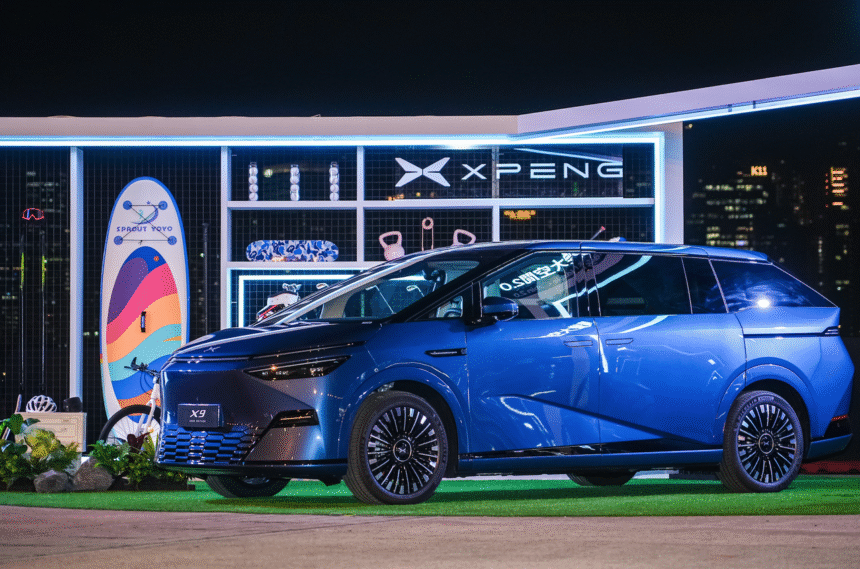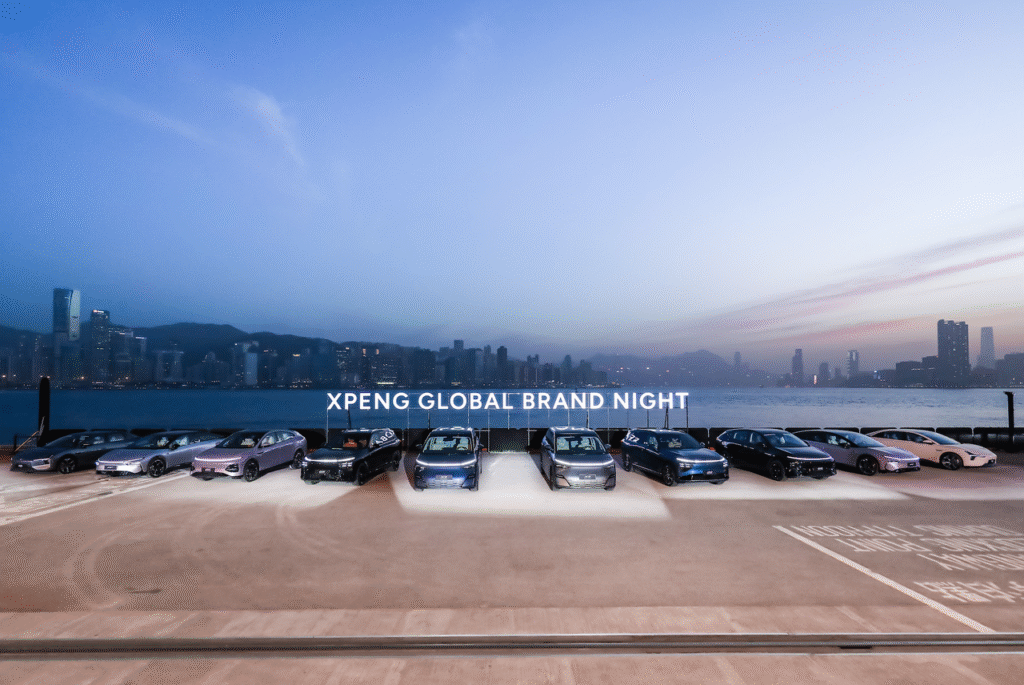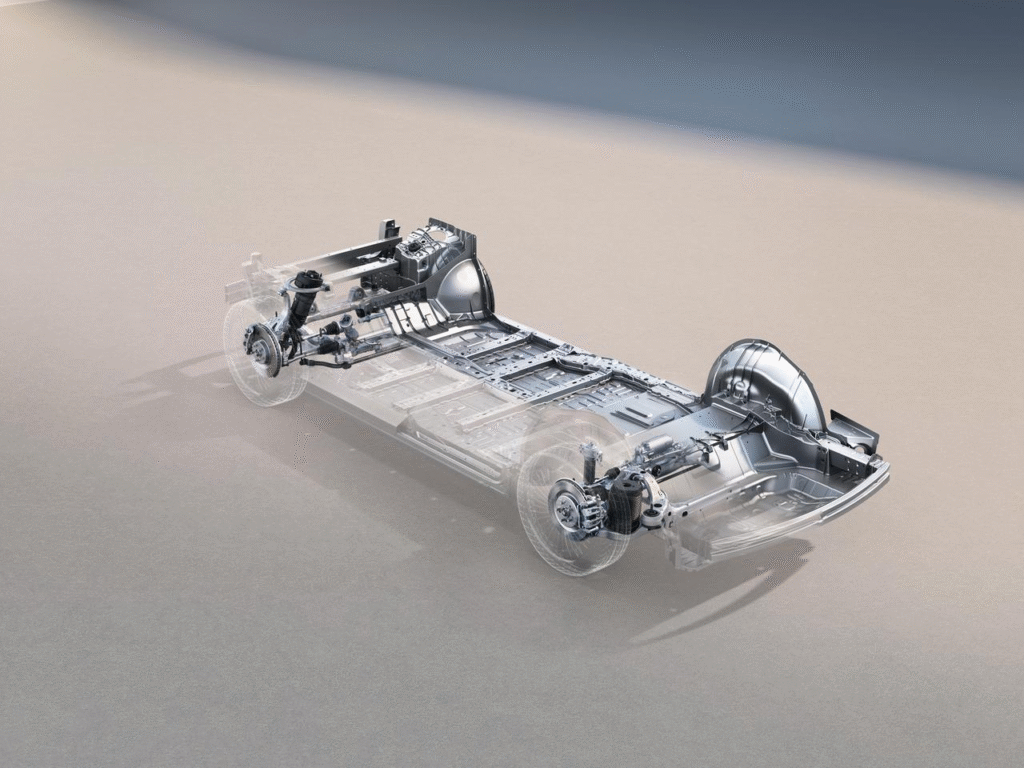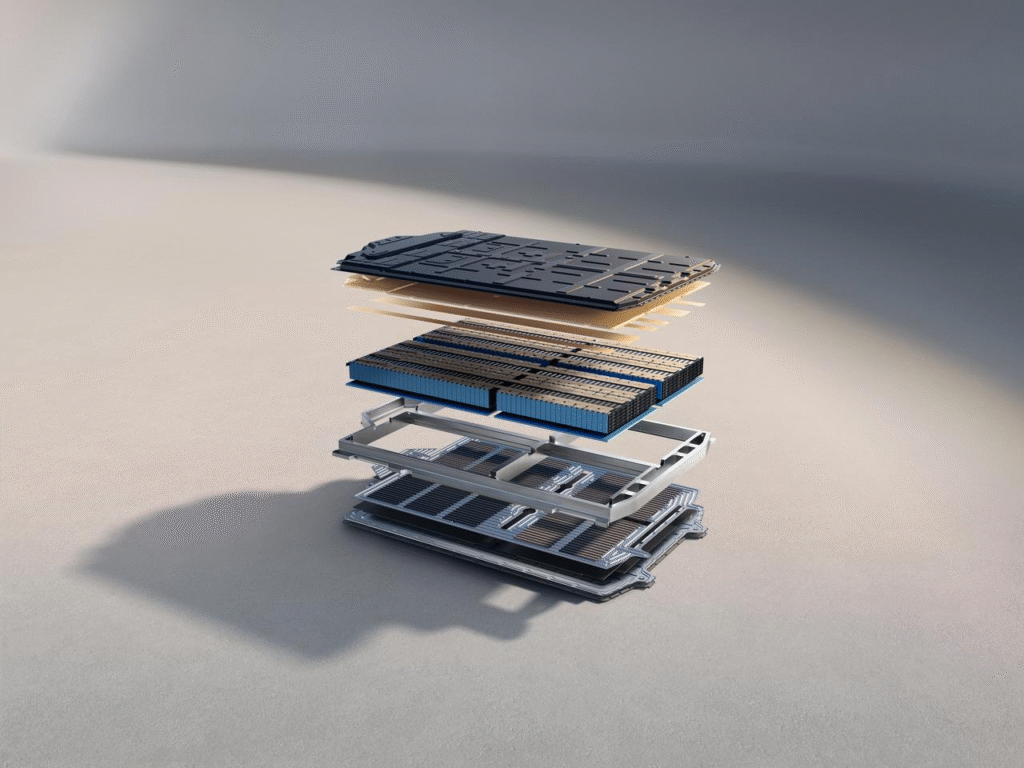XPENG, a leader in smart mobility, has introduced its upgraded AI Tech Tree strategy and announced the launch of its 2025 XPENG X9 global flagship model.
Looking ahead, XPENG puts AI at the heart of its future, focusing on electrification and practical AI to develop new ways to move people and goods. The company has built a complete in-house R&D system that includes:
- Cloud-based large AI models
- In-vehicle large AI models
- Custom AI chips for large model processing
- Core architecture for deploying large AI models
XPENG is the first automaker in China to produce vehicles featuring large-scale end-to-end AI models. Its advanced driver-assistance system, powered by these models, is rolling out worldwide, with early trials in Hong Kong.
The Turing AI Chip, developed by XPENG, has a 40-core processor that can handle 30-billion-parameter models on board, delivering triple the power of current chips. This chip will be used across XPENG’s cars, flying vehicles, and robots, allowing different technologies to work together. Mass production of the Turing AI Chip in China is scheduled for the second quarter of 2025.
XPENG also introduced the XPENG AEROHT Land Aircraft Carrier—the world’s first modular flying car. It will enter mass production in 2026 and has already seen over 4,000 pre-orders. This unique vehicle addresses the challenges of takeoff and landing, making air travel more available to everyone.
XPENG revealed its humanoid robot, IRON, powered by the Turing AI Chip. IRON features 60 joints, 200 degrees of freedom, and 3,000 TOPS (trillion operations per second) of processing power. Its 720° AI vision system is also used in XPENG’s autonomous driving tech. IRON is built for demanding jobs in smart factories and retail, turning advanced AI into useful tools.
2025 XPENG X9: Setting New Standards for Smart Mobility
The 2025 XPENG X9 brings 496 technical improvements and 35% new parts, setting a fresh standard for smart vehicles.
All X9 models come with Turing AI Smart Driving as a standard feature, using large AI models for a driving experience on par with skilled human drivers. On delivery, owners get the industry’s first fully functional autonomous driving software (NGP), which lets the car handle navigation from one parking lot to another without interruptions.
The X9 uses XPENG’s latest 800V high-voltage platform, offering rapid charging. It can add 405 km of range in just 10 minutes. With the 5C Superfast Charging AI battery, charging for one second adds 1 km of range, and it can reach 80% charge in just 12 minutes—quicker than most smartphones. It also leads its class in efficiency, using only 16.2 kWh per 100 km.
Inside, the X9 offers XPENG’s best cabin yet, blending comfort with smart features. Highlights include zero-gravity seats, an AI-powered suspension that adapts in real time, and a third-row seat that folds with one button. The 21.4-inch rear entertainment screen, fast wireless charging, and custom cabin lighting make the X9 perfect for families.
The X9 is the only MPV to earn top scores in all three major active safety crash tests. It offers 14 safety features, such as automatic emergency braking. The battery pack includes reinforced “bulletproof” protection that can handle impacts equal to 10 bullets, making the X9 safe even in tough situations.
XPENG will first launch the X9 in select European markets later this year, with plans to expand to more countries.
Accelerating Growth and Global Reach
XPENG’s rapid growth in technology matches its expanding global footprint. By the end of 2024, XPENG operates in over 30 countries and regions. It’s the top seller of premium EVs priced over €40,000 in Europe, ranks first in export volume among China’s new EV brands, and leads mid-to-high-end EV exports from China. In early 2025, XPENG became the best-selling new Chinese EV brand in China.
To serve its growing customer base, XPENG has invested in global charging infrastructure. The company has built 2,110 ultra-fast charging stations and works with major partners like Volkswagen and bp pulse. Its charging network covers Singapore, Malaysia, Thailand, and 27 European countries, with a total of 2.07 million chargers across 31 markets.
XPENG sees true globalization as more than copying products—it’s about real innovation that fits each market. With charging infrastructure still building up in many places, XPENG is working on a more flexible and practical energy solution.
The upcoming Kunpeng Super Electric System will increase pure electric range to 430 km, with a combined range of 1,400 km. Mass production starts in China in late 2025, giving drivers a new level of flexibility.
With the 2025 XPENG X9 raising the bar for intelligent MPVs and the company’s AI-driven innovation setting new trends for mobility, XPENG is shaping the future of how people move—on roads, in the air, and in AI-augmented environments. By pushing technology forward and working closely with partners, XPENG remains dedicated to making smart mobility safe, accessible, and transformative.
He Xiaopeng, Chairman and CEO of XPENG, said, “Progress can’t be stopped. AI is moving fast, changing industries and daily life. At XPENG, AI is at the core of what we do. Our AI Tech Tree upgrade builds on our strengths in AI, energy, and smart tech. By bringing these together, we’re building a future with smart EVs, robots, and flying cars. This will shape XPENG’s next decade and help make smart mobility available to everyone.”
About XPENG
XPENG is a top Chinese Smart EV company that designs, builds, and sells smart electric vehicles for tech-savvy middle-class buyers. Its mission is to drive the transformation to Smart EVs through technology, setting the stage for the future of mobility.
XPENG develops its own advanced driver-assistance system, in-car intelligent operating system, and core components, including powertrain and electronic architecture.
Headquartered in Guangzhou, China, XPENG also has offices in Beijing, Shanghai, Silicon Valley, San Diego, and Amsterdam. Its vehicles are mainly produced at plants in Zhaoqing and Guangzhou, Guangdong province.
Related Business News:
Panopto Appoints Stephen Laster as CEO














